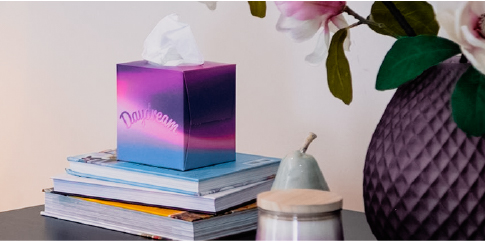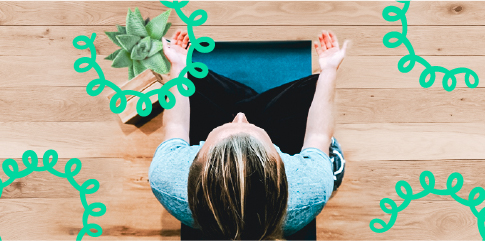How are you?
How many times are we asked this question every day? And how many times do we give the same standard answer. “I’m fine.” But are you? Is looking after the children all day giving you stress? Are the daily chores making you feel down? Are you suffering from anxiety due to overwork? If any of these issues are bothering you, you’re certainly not alone. You should be careful, because these sort of stresses and strains can lead to mental health problems later. And that’s what self-care is all about: taking an active role in your personal healthcare and mental well-being. Our mind needs just as much care as our body.
Self-care is becoming a big issue. For example, the searches for “self-care” on Google have more than doubled in the last five years. So, it’s not just the coronavirus epidemic we should worry about, there’s also an epidemic of anxiety and depression. Learning and thinking about self-care is the first big step to helping us all cope with the stresses of daily life.
Where to start with self-care
Everybody is different and everybody has their own ideas of what self-care means and what you should do. The best is to find out what works for your situation. The good news is that self-care isn’t at all difficult. It’s mostly about the small things.
Head to bed a little earlier
In 2019 a survey of 12 countries by the World Economic Forum found that over 60% of adults worldwide don’t get enough sleep. Sleep deprivation is a serious issue and can cause long-term health issues, like heart disease, high blood pressure, depression, obesity and can weaken the immune system. So, make sure you’re part of the 40% and go to bed earlier.
Unglue yourself from electronic devices
Too much screen time is unhealthy. That’s what we tell our kids, but the same applies to ourselves. The passive nature of using a digital device means depriving yourself of physical activity and exercise. For many this leads to weight problems and in some cases obesity. Studies show that spending more than six hours a day on a computer means we’re more likely to experience moderate to severe depression.
Spend time in nature
The feeling of well-being in nature is not a coincidence. Scientific studies show that time spent in the very great outdoors lowers blood pressure and reduces stress. And strengthens the immune system because of the vitamin D in sunlight.
Exercise regularly
It can feel like a chore sometimes, but the benefits of regular exercise cannot be ignored. Of course, the obvious advantages: managing your weight, lowering your cholesterol and reducing the risk of heart attack. Less obvious: physical activity can increase our self-worth and reduce stress and anxiety.
Eat more fruit and veggies
It’s not just about quantity, it’s also about variety. There are at least nine different families of fruits and vegetables, each with different beneficial vitamins and minerals, giving your body all the lovely nutrients it needs. Especially good for reducing blood pressure and the risk of heart disease.
Researchers have listed ten fruits and vegetables that were found to be associated with better mental health and fewer symptoms of depression. These include carrots, dark leafy greens such as spinach, lettuce, cucumber, apples, bananas, grapefruit, other citrus fruits, fresh berries, and Kiwi fruit.
Have fun
Just doing all the things you have to do isn’t enough. Take the time, at least once a day, to do something you enjoy. This can even be your favourite tv show, reading or working in the garden. The only thing that matters is that it gives you pleasure.
Self-care science
Creating and engaging in a self-care routine has been clinically proven to reduce anxiety and depression, reduce stress, improve concentration, minimize frustration and anger, increase happiness, improve energy, and more. Why not give it a try?












